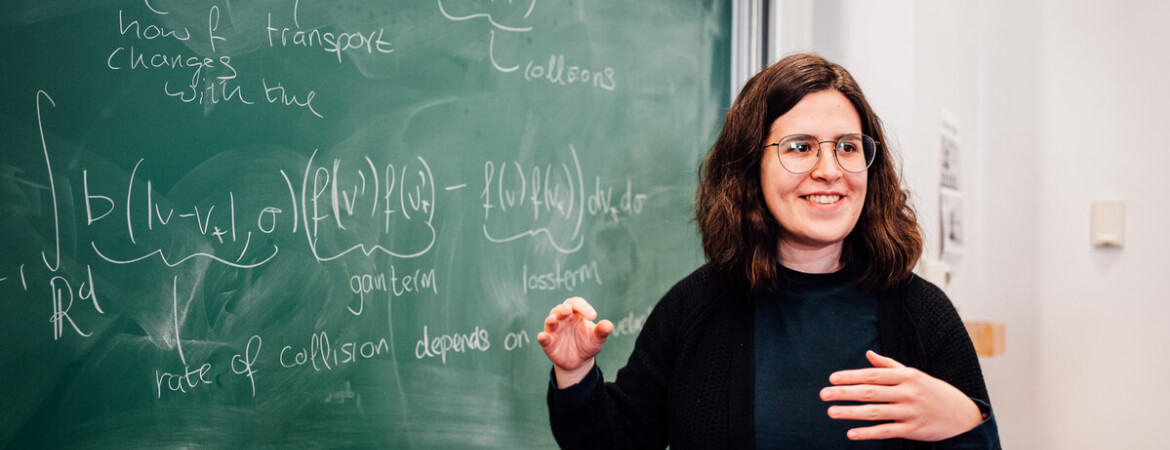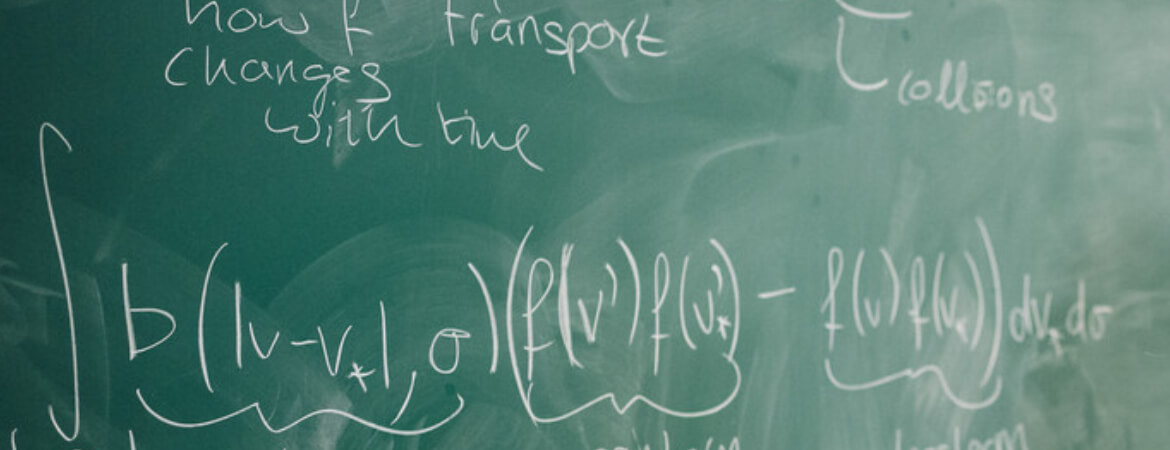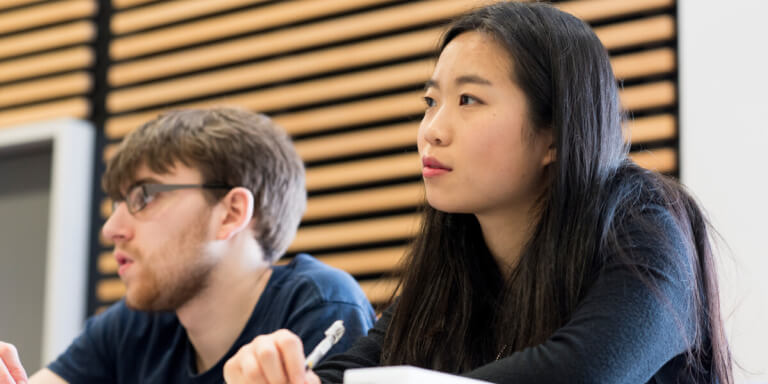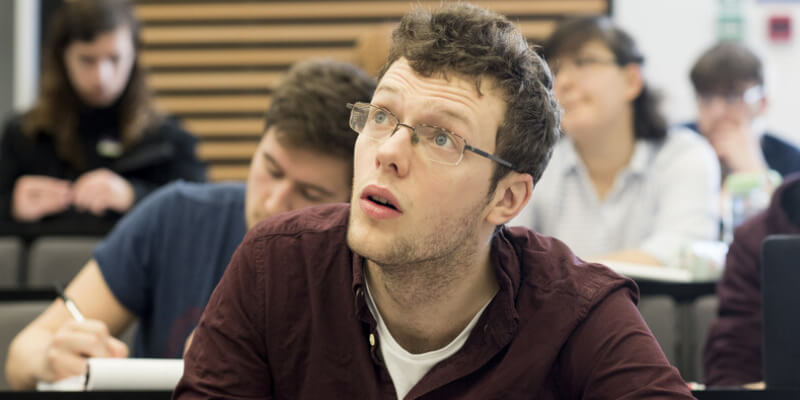Mathematics Undergraduate Degrees
4th
Warwick mathematics is ranked highly amongst competitors in the UK.
(Complete University Guide)
19th
Warwick is ranked joint 19th in the world for Mathematics - one of only 4 UK institutions in the global top 20.
(QS World Rankings University
by Subject 2023: Mathematics)
91%
Warwick mathematics graduates in highly skilled employment 15 months after graduation.
(The Graduate Outcomes Survey 2020/21)
Undergraduate Mathematics Courses at Warwick
Three or four years?
The Maths BSc and MMath have the same entrance requirements and share the same core in the first year.
It is easy to switch from the Maths BSc to the MMath until the end of the first year, and from the MMath to the Maths BSc until the end of the third year. Your personal tutor will be able to support you in making a decision that is right for you. If you're struggling to decide you can pick either and still change your mind later on.
Why not chat with some of our existing students via UniBuddy and ask them about which path they've chosen?
Gap years, study abroad, work placements
We welcome applicants who wish to take a gap year between school and university. Just achieve your admissions offer and your place will be reserved.
You can study abroad as part of either the BSc or MMath degrees. When it comes to work placements - for example, taking up to year away from your studies to work in industry - these are possible but there is not an official course route that includes them.
While we do not offer any formal support for work placements, you would be able to consult with our departmental careers advisor about them.
Joint honours degrees
As a Warwick undergraduate, you are free to do 100% maths. However, if you prefer, we also offer joint degrees featuring modules from some of the other world-class departments at Warwick. This provides flexibility to tailor your degree to suit your interests and your potential career. Please note, all of the joint honours degrees listed below are run and managed by the department that is not mathematics. As such, any students studying a joint honours degree will have that other department as their ‘home’. But, teaching on these course is supported and delivered by the Warwick Mathematics Institute and joint honours students are still very much part of the Warwick Maths family!
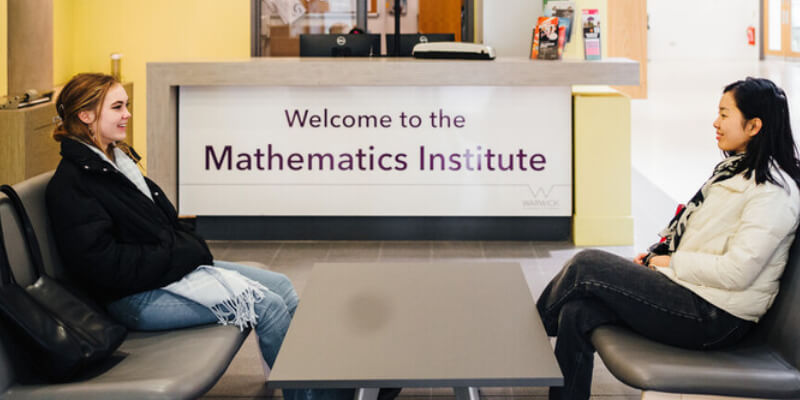
The demand for mathematical statisticians has expanded so rapidly in recent years that both within and outside the academic world there is a severe shortage of well-qualified people. The two subjects are closely linked, and here at Warwick the two departments are physically connected to each other with a bridge!
We offer both a three-year BSc and a four-year MMathStat. Both courses are the same for the first two years of study, but deviate from each other in their final years. Specifically, the MMathStat degree offers a supervised research project and the possibility to specialise in areas such as advanced statistics, biostatistics, computational statistics, actuarial and financial mathematics, and probability.
Experience Mathematics at Warwick
Applying
As well as asking for excellent grades, we encourage our applicants to sit one of the following admissions tests:
- TMUA
- STEP
Our teaching
Most of our teaching is through lectures. These are typically 3 hours per week for each module, and delivered by a member of academic staff. You’ll also get regular supervisions in small groups.
Student life
Life as a Warwick student is about so much more than just your subject. Our campus will be your home while you’re studying here and there is plenty for you to explore and enjoy.
Careers
Maths graduates are highly sought-after. As a Warwick graduate with a mathematics degree, you will hold a range of skills and have excellent prospects for a wide range of careers, across multiple sectors.

